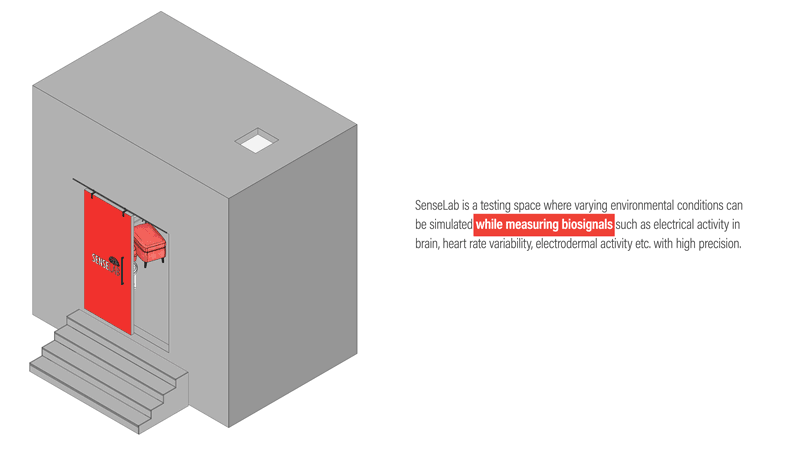
SenseLab
Quantifying Spatial Well-being
Definition of “comfort“ has long been a question for professionals of the built environment. Particularly the numerical definition of it, not only decides how we operate our buildings, therefore manage resources but also how the buildings impact our well-being in return.
However, this reciprocal relationship still lacks clarity on certain aspects, as research shows that occupants are consistently dissatisfied with the indoor climate and that most buildings struggle with huge performance gaps between simulations and actual measurements.
As the majority of data acquired in the comfort literature comes from user feedbacks, there are concerns with bias, data resolution, or scalability. Furthermore, it is proven by the research that maybe comfort is not what we should be after, but rather health - and not always these two mean the same thing.
Therefore, research project SenseLab aims to tackle the comfort definition from a newly emerging point of view: Directly looking into the human body. By doing so, we believe that we might not only identify the link between perceived comfort and its physiological markers, but also collect long-term data to observe how the indoor environment impacts our health and well-being.
SenseLab is a multidisciplinary project that connects the architects, building engineers, and researchers with medical backgrounds.
